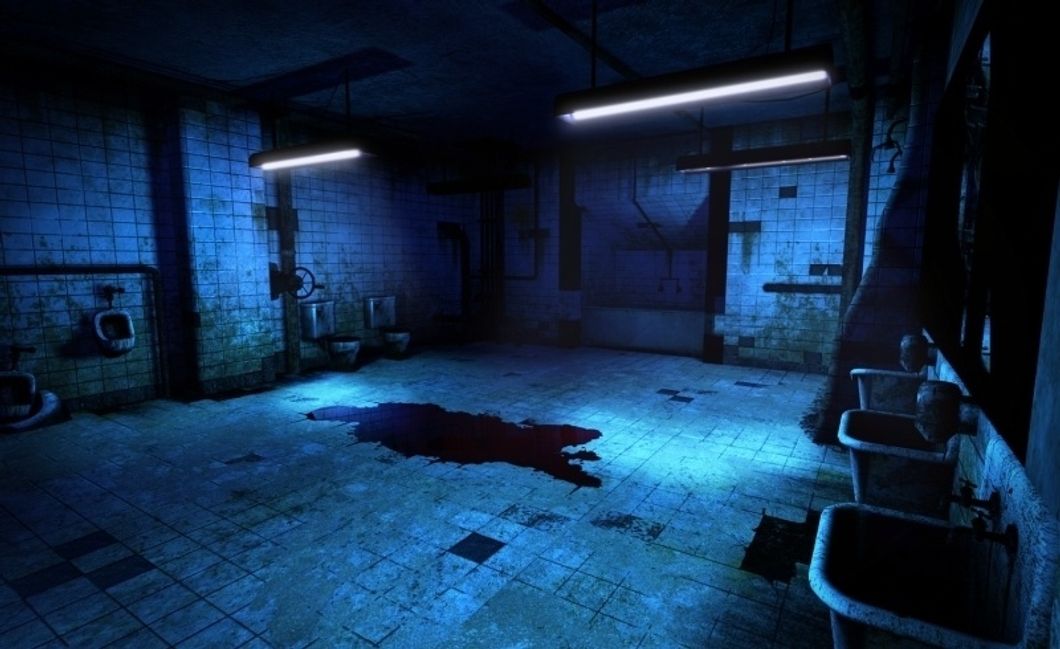The "SAW" films get a lot of flack for their unnecessary gore and the perpetual need to milk the metaphorical cow of every last bloody drop. Over the course of eight movies, the franchise remains one of the most widely watched unapologetically gory spectacles in popular media with a gross $975 million worldwide in the box office collectively.
Needless to say, they knew what they were doing on the financial front.
Story-wise, though...well...they abandoned quality and went straight for quantity. The original "SAW" (2003) short film was revolutionary in its own way and opened the doors to a new paradigm in horror: straight up body gore, one of the most disgusting and desensitizing film genres in existence (that's available to the mainstream audience, that is). The release of the full film adaptation (2004) re-opened the gateway to other body gore classics such as "The Human Centipede" (2009), "The Evil Dead" Reboot (2013), and "Hostel" (2005). In the past, the body gore genre has had its great additions and beginnings ["Cannibal Holocaust" (1980), "120 Days of Sodom" (1975), "Reanimator" (1985), etc.], but the SAW Franchise was the one that rebuilt it while also discrediting it with its respect for gore over story.
Despite many misconceptions of the horror genre, you can have one without the other. For SAW, a film with a very large following by the public and an upturned nose from critics, they leaned into intense gore over the essential story to create terrifyingly confusing traps (not confusing to solve, just confusing as to their meaning and place in the story itself).
So who in their right mind would want to watch the trainwreck of the SAW franchise from start to finish on purpose?
Well...I did.
Why?
……….
...science??
Needless to say, it was a mistake of epic proportions.
Too much of anything can be unhealthy, even water or air (not to say that the consumption of any amount of horror is as healthy as water), so my watching of over 12 hours and 51 minutes of fake blood, mind games, and torture was probably one of the worst possible things I could have done to myself that Saturday.
Our physical response to fear is an obvious, visceral reaction: most people will experience an increased heart rate and rush of adrenaline when exposed to a stressful situation. Some may even sweat, shake, or cry if they become frightened enough. Humans experience an essential fight or flight response to an unwelcome stimulus, and horror films can be the worst offenders.
At first, it was doing alright -- I had seen these films before, so a lot of the shock value had dissipated and I was left to enjoy the first movie for what it was while only cringing occasionally. The second film reminded me of why I had made a mistake in this endeavor: the movies are just bad. SAW II lacks a depth of character, goes immediately for shock value, and ignores the John Kramer's original view of justice to a criminal point, especially as only the second movie in the series. SAW III, however, I always enjoy -- I'm not sure why, but the story was rebooted and fans regained interest after this installment, despite critics predicting its failure. We had returned to that original twisted perspective of human nature and, of course...gore. Just, gratuitous and unrelenting blood, viscera, and dismemberment, most of the time to oneself.
After those three movies, the rest blurred into several hours of crimson, screams, and bad screenwriting, but I felt...weird afterward. Not disturbed or ill, just drained and numb. We've spoken about the physical effects of horror movies on the viewer, but what about the brain?
Many studies have been performed regarding the psychological concept of "desensitization" which is defined as "the diminished emotional responsiveness to a negative, aversive or positive stimulus after repeated exposure to it." After twelve hours of brutality, I had come out the other end generally unscathed, but mentally rewired (eerily similarly to Kramer's "victims"). Quite a few studies have been performed that have analyzed the effects of excessive horror on the mind; activity increases significantly in the amygdala (emotion center of the brain), which can cause long-lasting issues for the victim. Anxiety and PTSD among other symptoms can plague the audience long after the credits, leading to overall stress, which is a part of human existence we are perpetually being encouraged to decrease. Through watching horror movies, we are effectively killing ourselves faster.
Yeah, you done goofed (and I really goofed).
My ill-planned viewing of the SAW films has actually changed my brain chemistry and permanently desensitized me to the level of gore and violence I viewed for that period of time. Because I suffered from increased stress and anxiety, my amygdala has burned a warning in my mind that will associate fear with anything I viewed in those films that caused me significant distress, and those memories will likely never fade since they are tainted with a strong emotional reaction.
I'm a movie buff -- I love to watch any and all films, critique them, and analyze them, but even I can admit when I've gone one step too far. My love of film has actually altered my brain chemistry to the point of near-no return.
My advice for anyone considering taking up this challenge? Don't. Just don't. Not only are you torturing your own brain with desensitizing images but you are also torturing your own brain with bad writing -- even a person as stubborn as you can admit that those thirteen hours could be spent watching quality horror instead.

















